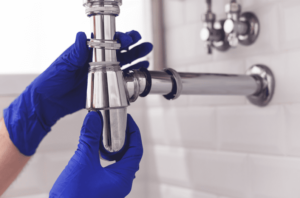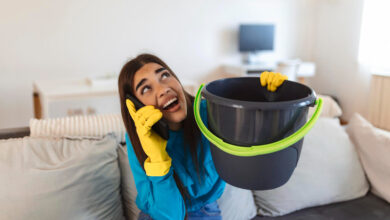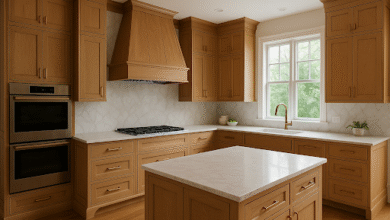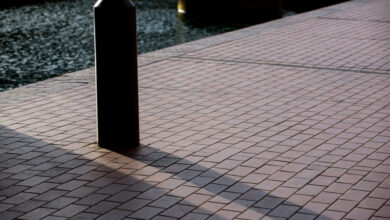4 DIY Plumbing Tips Every Homeowner Should Know

In one way or another, you probably have heard many horrible plumbing stories, such as burst pipes, kitchen flooding, and overflowing toilets, from your friends, relatives, and neighbors, or perhaps you may even have fair shares of them. Aside from the inconvenience and distress it brings, plumbing problems can also be costly, especially if homeowners fail to address them as necessary.
Don’t allow plumbing issues to cause a major disaster and discomfort in your home. Equip yourself with some do-it-yourself (DIY) plumbing tips that every homeowner should know. Read below to learn more.
-
Have The Right DIY Plumbing Tools
Before anything else, it’s a must for every homeowner to have plumbing tools at their disposal. That way, should an emergency arise, they’re equipped with even the basic ones to attend to the plumbing issue immediately.
For instance, in cases of a toilet problem, a plunger is one of the essential tools homeowners need for DIY plumbing jobs. It works by suctioning and applying inward pressure. As the plunge seals around the drain opening, you should move the handle up and down to regulate the water pressure until the clog dislodges.
Drain augers or plumbing snakes are the next in line of tools to unclog a difficult-to-dislodge object in a toilet or drain. It works by turning the cable or handle to dislodge the clog and get your plumbing fixture running again. However, note that incorrect use can aggravate the clog, which can cause jamming and tightening of the obstruction. In the worst case, a simple clog could lead to pipe damage.

Here are the other DIY plumbing tools every homeowner needs:
- A silicone gun to stop leaks
- A wrench to loosen and tighten pipes and fittings
- Adjustable pliers for a wide array of holding or grip plumbing tasks
- Shifters to loosen and tighten nuts and bolts
- A pair of heavy-duty rubber gloves
- A thread-seal tape to prevent leaks
With Essendon plumbing services and other trusted plumbing companies, homeowners can ask for expert recommendations about the best DIY plumbing tools from professionals.
-
Check Toilet Leaks
Perhaps you’ve noticed an unexpectedly high water bill for the past few months. In such a case, leaks can be one of the culprits. Leaks can commonly be found in your pipes or toilet. It’s crucial for homeowners to know how to spot leaks since, aside from ballooning your water consumption, water damage at home can also be costly.
For instance, one way to detect toilet leaks is by adding a few drops of food coloring (blue or red) to your toilet tank. After that, don’t use the toilet for 20 to 30 minutes. After this time, check the toilet bowl to see if the water is clear or discolored. Clear toilet water means there’s no leakage. On the other hand, discolored toilet water could indicate a leak is present.
-
Watch Out For Odd Smells
Odd odors, such as sulfur smell, could indicate a plumbing problem that can cause homeowners to worry. Essentially, there are various factors that could trigger unusual or foul odors from your drains.
For one, water serves as a pipe seal that can prevent gas from entering your home from the sewer line through the drain. However, a drain pipe can accumulate sewage gas because moisture evaporation can lose its seal with prolonged unuse. Homeowners can fix this problem by running water down the sink for a few minutes at least once every few weeks.
On the other hand, if you notice a rotten egg odor while using hot water, this could be due to the corrosion of the anode rod (magnets water particles), reacting with water chemicals that cause a sulfur smell in the home. Homeowners can replace the anode rod by contacting a plumber if the stench problem becomes unbearable.
-
Watch What You Pour In The Drain
Another essential tip homeowners must be aware of is how they can minimize possible plumbing issues. After all, prevention is still better than cure. And with that, it’d be good to note that what you pour into your drain can be detrimental to your home’s plumbing system.
As much as possible, avoid pouring anything oily and solid into the drain since they can cause pipe blockage. Examples include fat, oils, grease, household fluids, coffee grounds, paper towels, and more. A good practice is to only pour clear water or water with a cleaning solution, like detergent soap, on drains. Using a drain filter for your kitchen sink can also help prevent blockage from eggshells and food particles that come with the dishes.
Wrapping Up
As homeowners, having basic knowledge and skills to recognize and handle common plumbing problems can go a long way. It can help you take the necessary actions to avoid costly repairs down the road.
The above DIY plumbing tips are generally easy to remember and follow. Most of the tips involve inspection because most plumbing repairs require professional expertise. However, if you’re unsure how to handle a plumbing issue, don’t hesitate to contact a professional to inspect and fix the problem.




